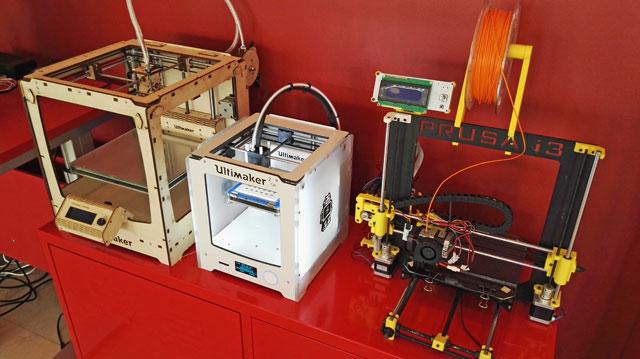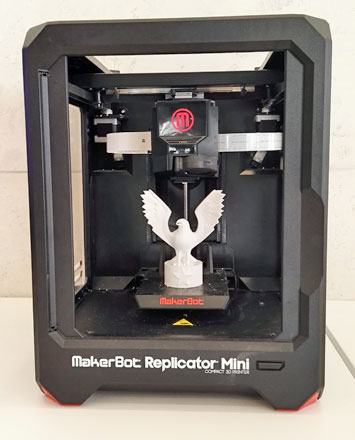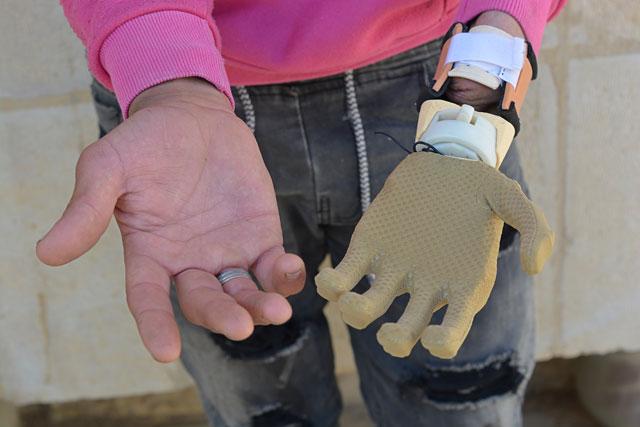You are here
Sector insiders say 3D printing holds great potential for Jordan
By Bahaa Al Deen Al Nawas - Sep 08,2016 - Last updated at Sep 08,2016

3D printers on display at the Jordan Museum as part of the Amman Design Week’s MakerSpace on Wednesday (Photo by Bahaa Al Deen Al Nawas)
AMMAN — The industry of 3D printing is slowly growing around the world but still faces problems in Jordan, as individuals are banned from owning 3D printers and companies allowed to deal with them operate under certain regulations, according to executives working in the field.
Several companies working in 3D printing and virtual reality (VR) are taking part in the Amman Design Week (ADW), raising awareness of the industry through their booths at the Jordan Museum in ADW’s MakerSpace.
Jordanian company Third Reality offers 3D printing services “at cost price”, making no profit in order to raise awareness of the industry, the company’s CEO and founder, Mahmoud Omar, told The Jordan Times on Wednesday.

Individuals and start-up companies are also hoping that negotiations with the government will lead to relaxing restrictions on the ownership of 3D printers in order for the industry to actually boom, Omar said.
Numerous materials are used in 3D printing, but low to medium-tech printers use plastic, carbon fibre and a material called XT, which Omar said can be used to make food utensils or for medical uses such as prosthetic limbs.
“Research into the industry of 3D printing is also looking into using organic material and stem cells to create human organs and use them in surgery,” Omar said.
If a prosthetic limb costs JD1,000 for example, 3D printing would cost only 10 per cent of that price, he added, noting that the technology could later be developed to construct entire buildings.
Michael Makdah, marketing manager at Mixed Dimensions, a company involved in 3D printing, gaming and VR, echoed Omar’s sentiment on the “tough conditions” that companies have to adhere to when using 3D printers, as they have to obtain “military approval” through lengthy official procedures.
Measures also include installing surveillance cameras to monitor the 3D printers at all times, according to Makdah.
Makdah and Omar also agreed that the 3D printers that might pose a security threat are “very high-tech”, but the standard ones cannot be used to manufacture weapons.
The executives said 3D printing has the potential to flourish around the world, envisioning a future where every household would own one, using it to manufacture various tools.
Exhibitions, workshops and talks featuring over 60 local and international designers are being held at Raghadan Tourist Terminal, the Jordan Museum, and Ras Al Ain Gallery’s Hangar until Friday, as part of ADW.
Related Articles
Many manufacturers are at an early stage of discovering the benefits of 3D printing, but one of the clearest strengths is customisation.
AMMAN — Muhammad Nasser Kennan wanted to be a football coach after finishing school, but in the summer of his 10th grade, his dreams were pu

















